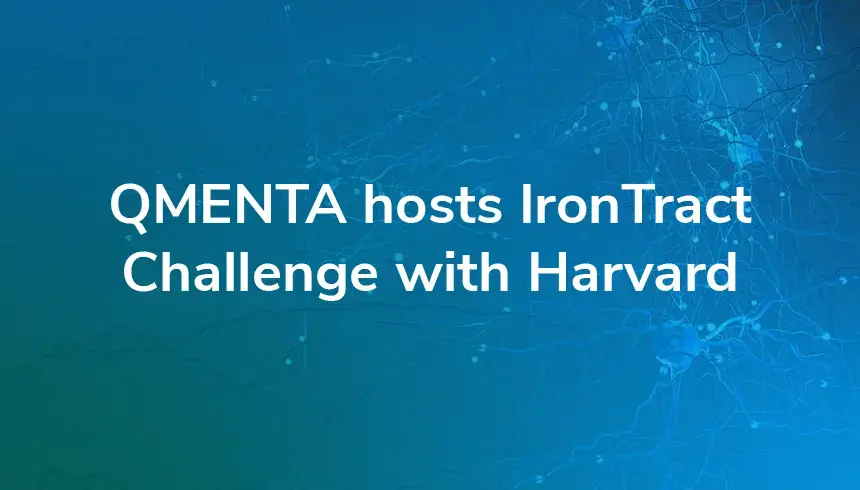QMENTA is pleased to be collaborating with Harvard’s the Athinoula A. Martinos Center for Biomedical Imaging and the University of Rochester in supporting an exciting research challenge open to image analysis experts worldwide as part of the Medical Image Computing and Computer-Assisted Intervention (MICCAI) conference workshop.
Background on Tractography technique
Tractography has emerged in neuroimaging research as a powerful tool for the analysis of fibrous white matter structure in the brain. Using sophisticated diffusion-weighted magnetic resonance imaging (DW-MRI) sequences, tractography algorithms estimate the orientation of white matter fibers and construct virtual 3D space curves representing the likely location and structure of white matter fibers.
An ongoing challenge in tractography research is the analysis of how closely the information yielded by tractography algorithms represents the real white matter structure, with alternative measurements of the ground truth only available through invasive chemical tracer studies.
Details on the challenge
In this challenge, the Athinoula A. Martinos Center for Biomedical Imaging and the University of Rochester provide a chemical tracer study of an ex-vivo brain sample at the incredible detail of 0.7mm isotropic resolution with 515 different gradient directions and b-values in a diffusion spectrum imaging dataset. The organizers challenge teams of tractography experts from research institutions around the world to take their best shot at matching the ground truth measured by the tracer study. They will be provided with the original DW-MRI data and the injection location of the chemical tracer. Each team can then submit multiple entries and will be provided with a quantitative measure of how closely their entry matches the ground truth immediately after submission, so that they can tweak and tune their algorithms to try and get the best results.
QMENTA is providing the IT infrastructure to enable international collaboration in this exciting challenge. The DW-MRI data is hosted on the QMENTA cloud system and is available for download. The participants can then upload their results to the QMENTA system, which will compute a score and ranking that is then fed back to the user, all through a standard web browser like Chrome.
More on QMENTA
QMENTA provides an advanced medical image storage, processing and visualization solution focused on the analysis of medical image data for researchers and clinicians. We provide state-of-the-art medical image processing algorithms in a seamless way in order to accelerate the development of new therapies for neurological diseases via a scalable and collaborative cloud platform. Moreover, our platform offers the Tract Segmentation Tool, which extracts the major white matter fascicles from diffusion-weighted MRI data.

